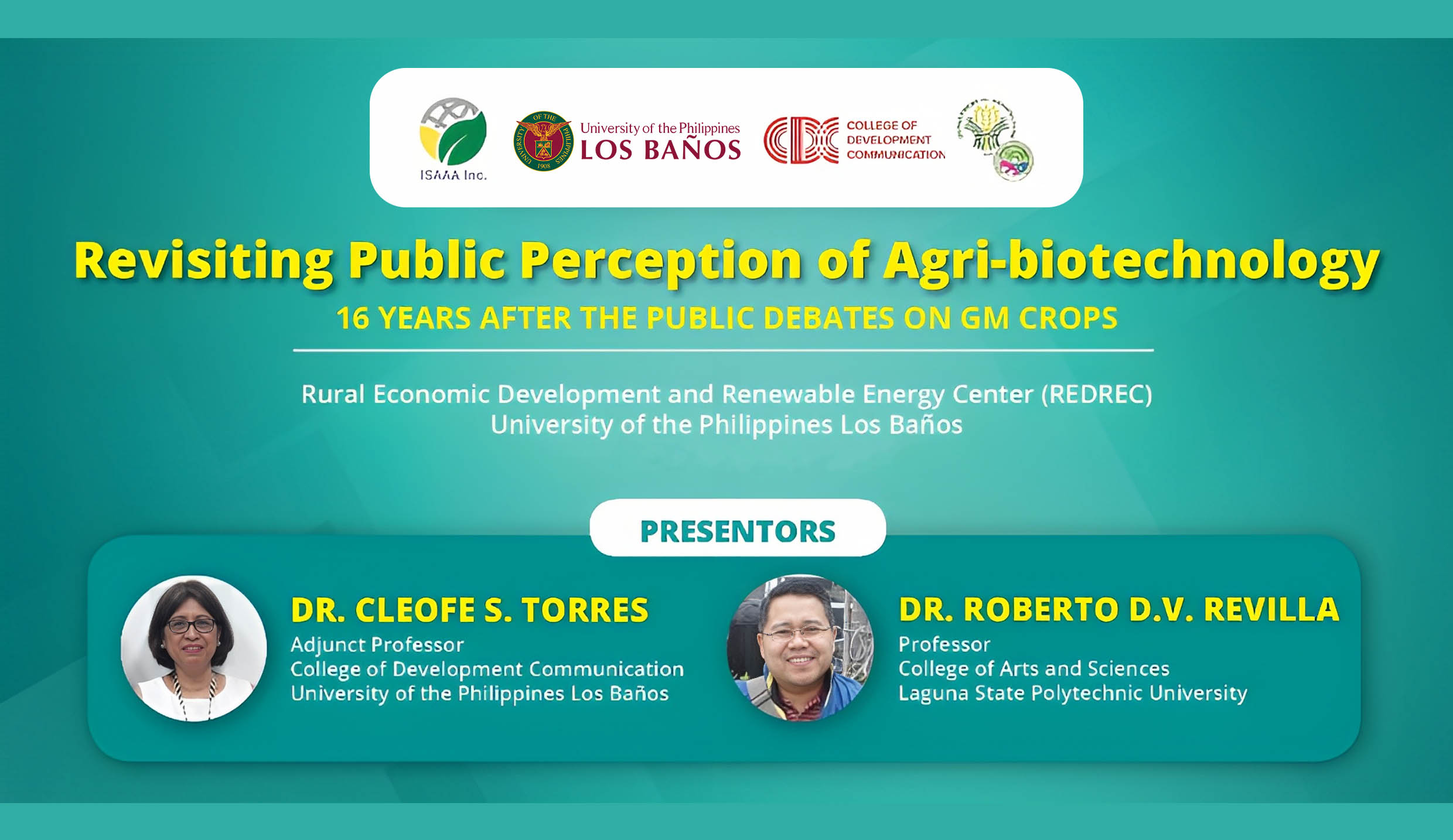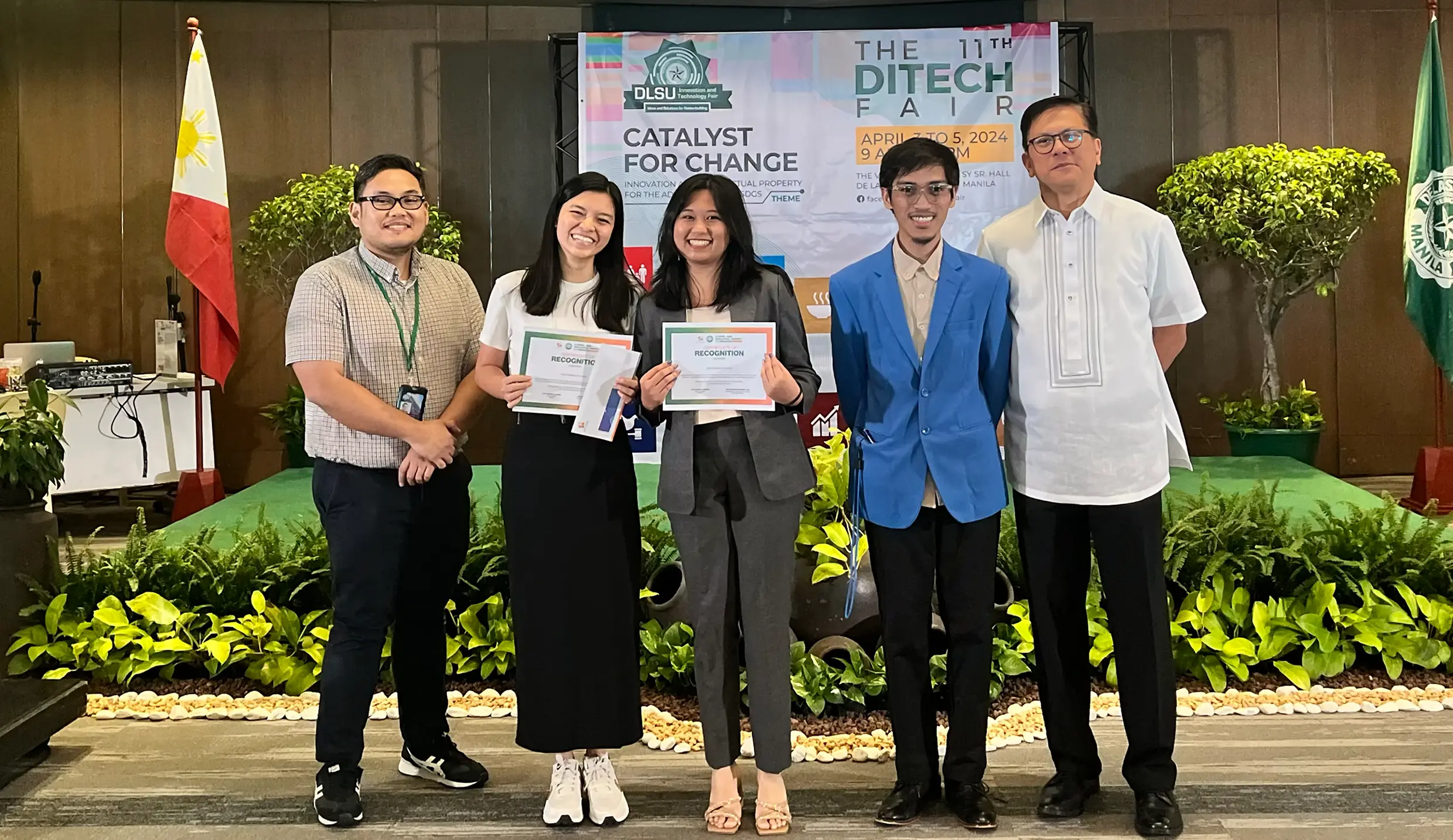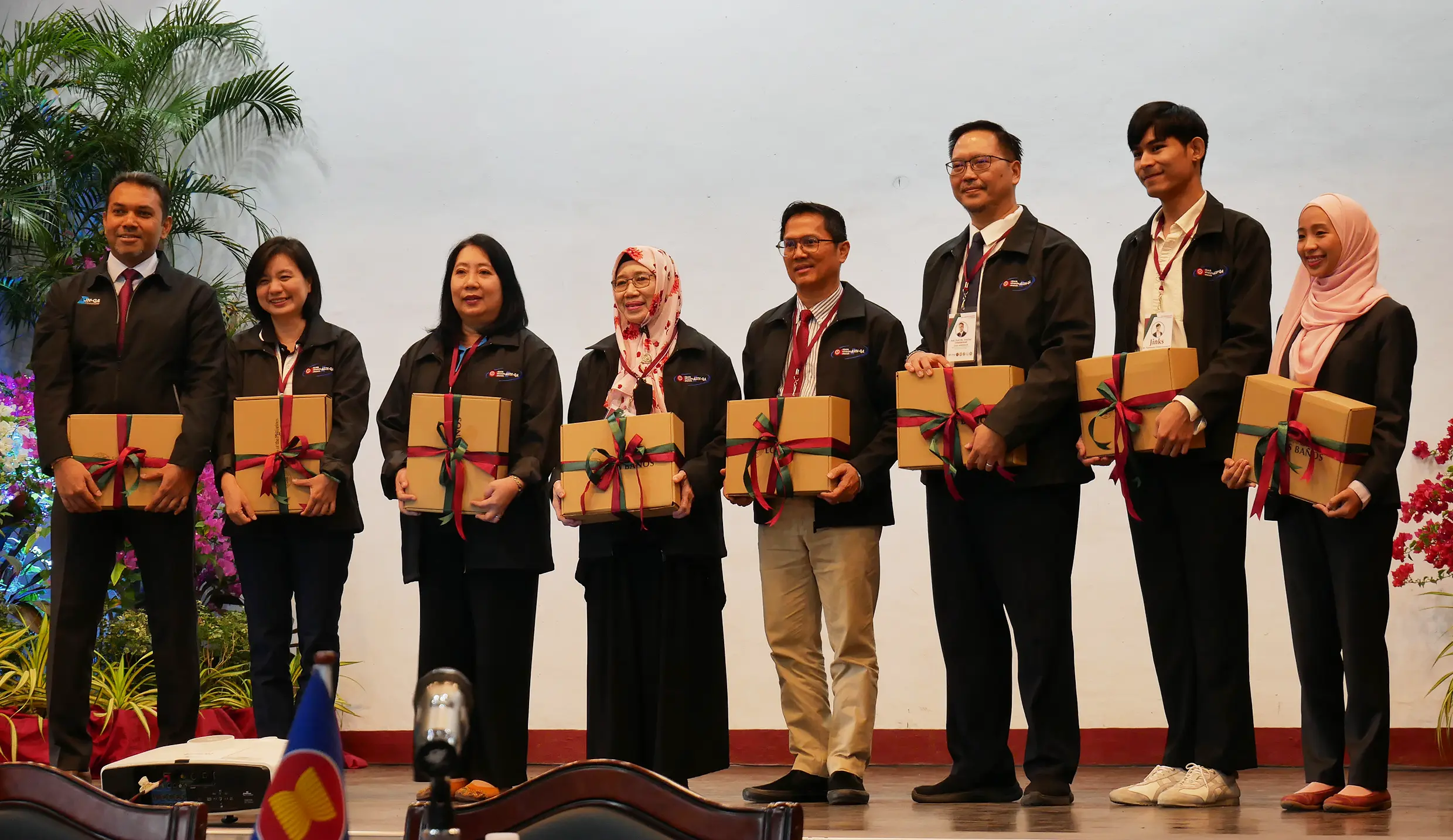
Nine stakeholder groups from ten regions in the country have an overall favorable perception of agribiotechnology despite the negative publicity it had received in the past.
This was the highlight of the findings of a study conducted by the College of Development Communication (CDC) of UPLB and the International Service for the Acquisition of Agri-biotech Applications, Inc. (ISAAA) among 1,180 respondents from the stakeholder groups.
The findings were presented at a seminar held at the REDREC Auditorium in UPLB on March 30.
The study is funded by the Philippine Agriculture and Fisheries Biotechnology Program of the Department of Agriculture (DA) and is part of the “Know the Science Project” of ISAAA, the Southeast Asian Regional Center for Graduate Study and Research in Agriculture (SEARCA), and UPLB CDC.
Titled “Revisiting Public Perception of Agri-biotechnology: 16 Years After the Public Debates on GM Crops, the seminar was facilitated by Dr. Cleofe S. Torres, co-project leader and adjunct professor at CDC.
Dr. Torres explained that the study took off from a previous study conducted in 2006.
She highlighted the need to reinforce and invest in efforts on a public understanding of agri-biotechnology, especially among consumers and farmer leaders.
According to her, such stakeholders must be proactively sought out by scientists who are deemed by the survey participants to be the most trusted sources of agri-biotechnology information. She also recommended the use of social media, such as Facebook and TikTok, in the popularization and mainstreaming of agri-biotechnology.
Dr. Roberto DV. Revilla, a professor at the Laguna State Polytechnic University (LSPU) and one of the study’s field coordinators, said that they initially used an online survey method but shifted onsite to be able to enjoin their intended stakeholders to participate in the surveys.
Dr. Revilla emphasized that having good interpersonal relations with proper channels enabled them to reach their participants.
In her welcome message, Dr. Rhodora R. Aldemita, executive director of ISAAA and the project leader, said that the results of the study would help ISAAA and other stakeholders craft better information, education, and communication campaigns for the public acceptance of agri-biotechnology in the country.
The project’s study leaders are Ma. Teresita B. Osalla, an assistant professor at UPLB-CDC, and Mr. Jerome C. Baradas, SEARCA project coordinator. Juvy Leonarda N. Gopela and Dannah Mae S. Torres are the study’s research assistants. Ten field coordinators from different state universities and colleges and government agencies were mobilized by the project. (Miguel Victor Durian)








